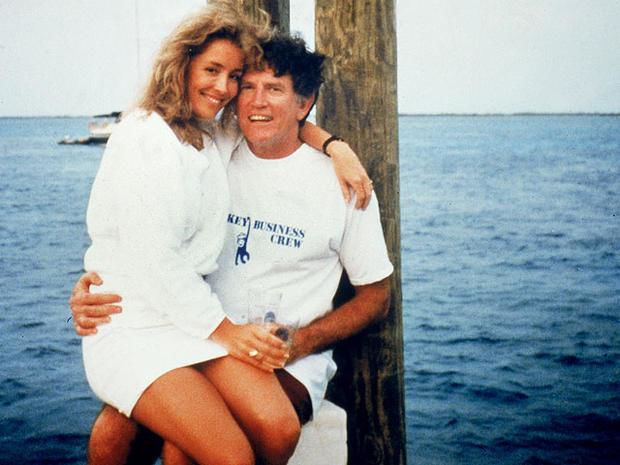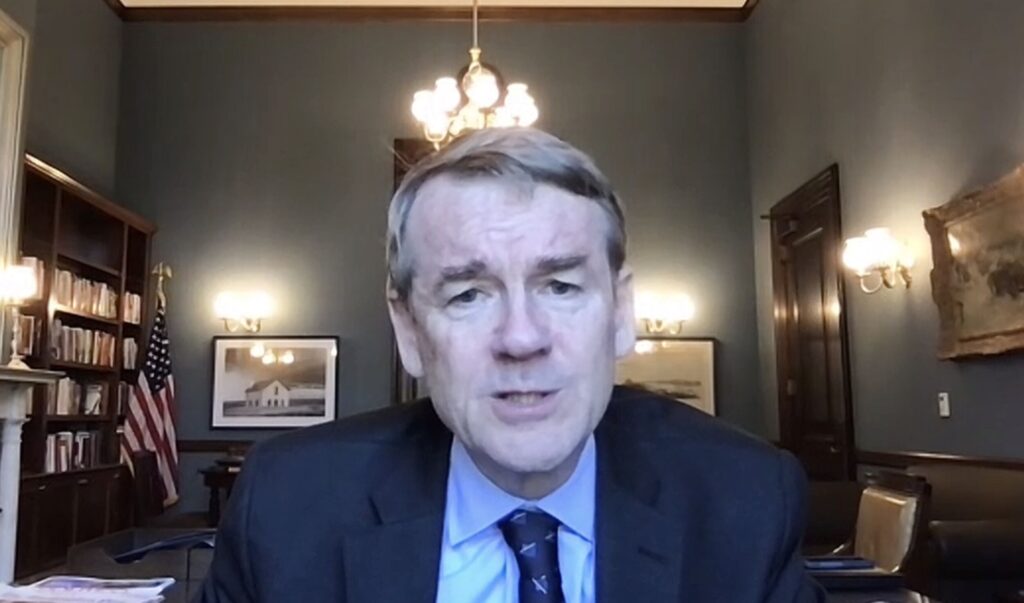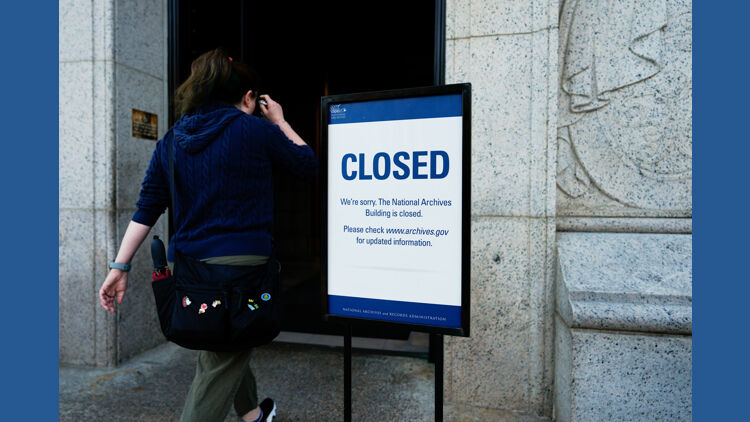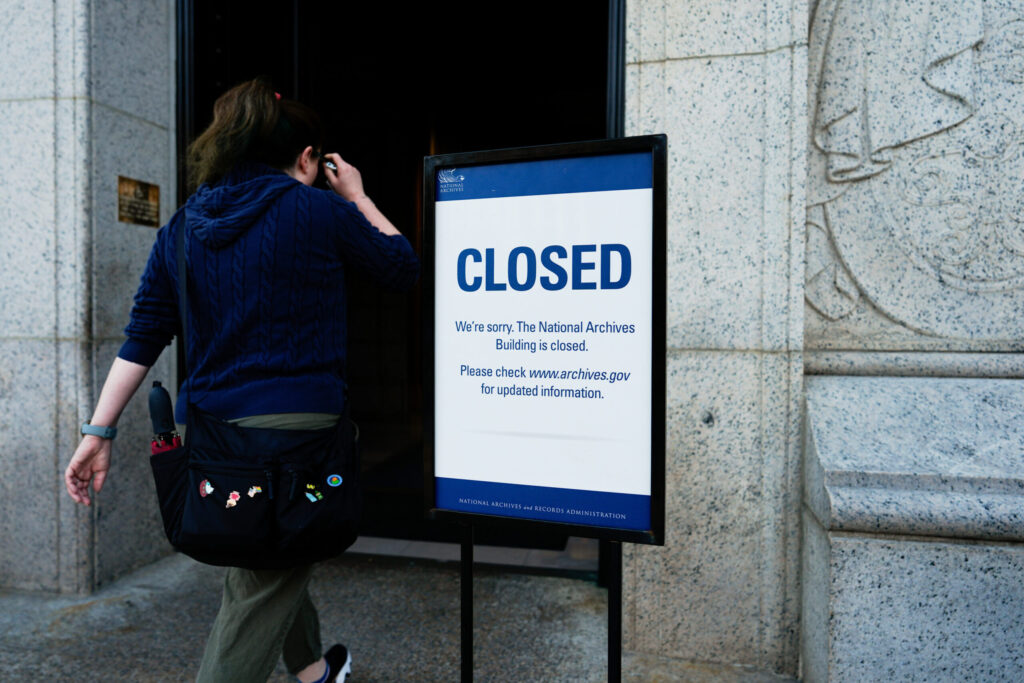TRAIL MIX | Was Gary Hart’s downfall orchestrated? It might not matter

The events and images are the stuff of political legend.
Gary Hart, the Colorado senator bound for the White House, saw his presidential ambitions evaporate overnight in 1987 when the Miami Herald “linked” the Democrat to a woman who wasn’t his wife, later identified as Miami model Donna Rice.
Less than a week after the first story published – amid a feeding frenzy of journalists trying to substantiate rumors the handsome westerner was a “womanizer,” as the phrase had it in those days – Hart formally ended his second run for president.
Hart maintained then and insists to this day that Rice was just a friend of a friend, and the two never had an improper relationship.
But in the space of a few days, the world had changed, and neither politics nor journalism would be the same.
In the words of Matt Bai, author of “All the Truth is Out,” a 2014 book about the episode and the transformation it wrought on America, it was the moment when “politics went tabloid.”
It’s hard to imagine, but political news didn’t always include salacious stories about the personal lives of elected officials and candidates.
The story has blurred over the years.
The infamous photo of Rice sitting on Hart’s lap next to a yacht named Monkey Business at a dock on the island of Bimini, for instance, didn’t appear on the cover of the National Enquirer until nearly a month after Hart quit the race, contrary to memories that the photo led to Hart’s decision.
Next month, Hart’s downfall – and the time when political news turned lurid – will likely come into sharper focus. “The Front Runner” – a film adaptation of Bai’s book, directed by Jason Reitman and starring Hugh Jackman – is opening across the country, including a red-carpet screening at the Denver Film Festival on Nov. 8. The film premiered over Labor Day weekend at the Telluride Film Festival.
Reporting by The Atlantic’s James Fallows posted online last week, however, muddies the narrative, though perhaps not its lessons.
“Was Gary Hart Set Up?” Fallows asks in the article’s headline.
The answer, based on a pair of deathbed confessions decades apart – one of which, it turned out, was premature – is yes.
The way Fallows tells it, top Hart consultant Raymond Strother learned in 1991 from the dying and repentant Lee Atwater – a notoriously vicious Republican operative who managed George H.W. Bush’s successful 1988 presidential run – that Atwater had staged the events that knocked Hart from the race.
The set-up is supposed to have hinged on the cooperation of Billy Broadhurst, a larger-than-life Hart associate who arranged the cruise that stranded Hart overnight in Bimini – as well as making sure Monkey Business was the only boat available, and putting Rice on the trip and on Hart’s lap for the iconic photo.
The entire string of events, Strother told Fallows, landed Hart on the front page of the Miami Herald following a tip that was also orchestrated by Atwater.
Strother mostly kept Atwater’s confession to himself, but a cancer scare late last year spurred him to share what he’d learned more widely, including with Hart, Fallows wrote. (His cancer went into remission, but Strother decided the time had come to open up.)
Fallows, who has known Hart since the 1980s and wrote a book about his approach to military and national security policy, joins Hart in theorizing how history might have turned out differently if Atwater’s machinations hadn’t succeeded.
If Hart’s campaign hadn’t been derailed, maybe the first President Bush wouldn’t have wound up winning the presidency, Hart and Fallows muse. It’s hard to imagine Bill Clinton appearing on the national stage in 1992 if Hart had been running for a second term, or the second George Bush emerging as an antidote to Clinton.
Without W. in the White House, the last two decades might have gone in very different directions, Fallows suggests.
Bai, however, splashes some cold water on the speculation.
“It would be just like the perversity of history for someone to undertake an effort that might well have happened by itself,” he told Fallows.
There were, after all, numerous investigations underway into Hart’s personal life – though Hart and some of his longtime associates are adamant that the rumors were just that, without basis in reality.
Rick Ridder was the national field director for Hart’s 1984 campaign. He and his wife, Joannie Braden, founded RBI Strategies and Research a year later, and he’s managed or consulted on another five presidential campaigns, including Howard Dean’s 2004 run. This cycle, the firm is consulting for Democrat Jared Polis’ gubernatorial campaign.
He told Colorado Politics that he read the Fallows article with interest, but said it raises more questions than it answers.
Ridder said it was well-known among campaign staffers that Broadhurst – who died several years ago – meant trouble, and he recalled warning senior staffers to keep him away from Hart.
He said it’s plausible that a dirty trickster might have taken advantage of Broadhurst’s desperation for money and set the events in motion, although he questioned whether so complicated a scheme would have remained secret for so many years.
Still, Ridder said with a chuckle, he’s been framing the story this way for years: “If it had happened six months later, it never would have happened, because we would’ve had Secret Service protection, and they never would have let him go for a ride on a yacht named Monkey Business, or let the reporters stake out Gary’s front door like the Miami Herald did.”
Does the story reported by Fallows change anything?
“No,” Ridder said. “There was some bad judgment at different times. But was that bad judgment also promoted by, shall we call it, nefarious intent? It’s possible. But we have no real documentation, and we have no real way of knowing.”
But there’s no going back, even if it turns out Atwater had engineered the whole thing.
“The point being, the rules did change in a very short period of time, and probably not for the better,” Ridder said.
He recalled a conversation he had about six weeks later with Clinton, the governor of Arkansas, who was considering a run for president in 1988 and had asked Ridder to consider joining his campaign.
“I said, ‘Governor Clinton, I’m concerned because there are a number of rumors about, perhaps call it, your flirtatious past.’ He looked at me, and apparently it’s a line he’d delivered with some regularity,” Ridder said.
“‘If there’s any statute of limitations on that kind of activity, it’s just not a problem,’ Clinton told me. I responded very directly to him and said, ‘Right now, there is no statute of limitations.’ And five days later, he decided not to run that year. Did we know the world had changed? Yes. Everyone knew it had changed.”














